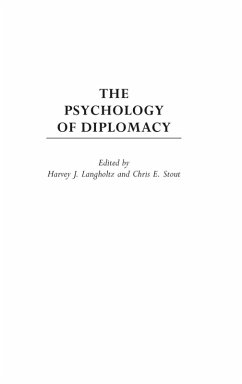The first book focused on diplomacy from a psychological perspective, this work features 12 top diplomats and psychologists examining issues and approaches. Factors considered include the implicit and explicit ground rules for the interaction of diplomats, and their assumptions about their own roles and those of their counterparts. The book explores the vital question: Do diplomats meet to work out agreements and solutions for the common benefit of humanity, or is it the responsibility of a diplomat to seek advantage for his or her own nation at the expense of others? The topics include ethnic rivalry, water resources, and financial issues. In some cases in this text, the views of psychologists and diplomats are consistent. But there is a gap between the two disciplines. Psychologists tend to be more idealistic, egalitarian, and theory-based, while the diplomats most often focus on the practical realities of dealing with their counterparts and issues where opposing nations seek divergent outcomes. The actual implementation of diplomacy, and the psychology of diplomacy, takes place not at the global or macro levels, but instead at the one-on-one, micro level. This volume will appeal to students and scholars in students, scholars, and practitioners in psychology, international relations, peace studies, and political science.
Hinweis: Dieser Artikel kann nur an eine deutsche Lieferadresse ausgeliefert werden.
Hinweis: Dieser Artikel kann nur an eine deutsche Lieferadresse ausgeliefert werden.








